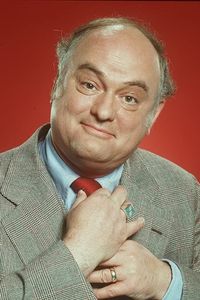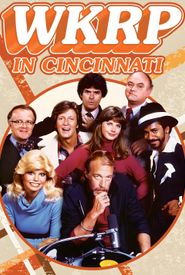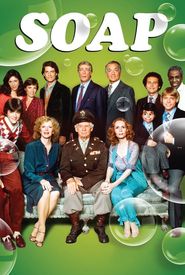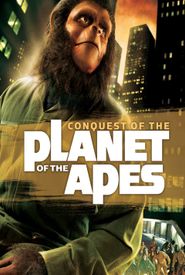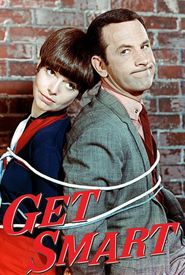Gordon Jump, a robust and imposing figure in the realm of character acting, has left an indelible mark on the world of entertainment, with his most iconic and enduring role being that of Arthur Carlson, the affable and often befuddled radio station manager, in the beloved television sitcom WKRP in Cincinnati, which first aired in 1978.
Prior to his rise to fame, Jump's career began in the Midwest, where he honed his skills behind the microphone and camera, working for a variety of radio and television stations, including producing roles in Kansas and Ohio, laying the groundwork for his future success.
In the year 1963, Jump made the significant decision to relocate to the vibrant city of Los Angeles, where he became deeply involved in a series of stage productions in collaboration with Nathan Hale and his wife, Ruth Hale, a talented couple who had previously established a small yet thriving theater in the charming city of Glendale, California.
The Hales, who had initially set their sights on pursuing a career in film, ultimately abandoned their Hollywood aspirations as their theater proved to be an enormous success, drawing in a diverse range of talented individuals, including the notable actors Mike Farrell and Connie Stevens.
Jump often expressed his deep gratitude towards Ruth Hale, crediting her with having played a pivotal role in sparking his acting career, and he remained fiercely passionate about the art of acting in live theater, a passion that continued to drive him throughout his career.
As the 1960s unfolded, Jump's television career began to take off, with notable appearances in iconic series such as Daniel Boone, Get Smart, and Green Acres. This newfound exposure also led to his involvement in a series of educational and religious short films, meticulously produced and directed by Judge Whitaker at Brigham Young University during the same decade.
Jump's association with the Hale clan, spearheaded by his wife Ruth, had a profound impact on his personal and professional life. Ruth, a woman of great influence, played a significant role in Jump's decision-making process, encouraging him to abandon his smoking habit and advising him to turn down lucrative offers for beer commercials.
Throughout the 1960s, Jump's acting career continued to flourish, with standout performances in films such as "You Make the Difference," where he portrayed a compassionate Mormon bishop, and Marriage: What Kind for You? (1967),in which he played a thoughtful and devoted husband. Jump's versatility as an actor was further demonstrated in his portrayal of the Apostle Peter in the film Mormon Temple Film (1969),a testament to his range and dedication to his craft.
Ruth Hale's guidance and influence had a lasting impact on Jump's life, shaping his decisions and helping him navigate the complexities of his career. Her unwavering support and encouragement played a significant role in Jump's success, and their partnership remained a constant source of strength and inspiration throughout his life.
Notable individual Jump's life was characterized by an unwavering commitment to The Church of Jesus Christ of Latter-Day Saints, where he strictly adhered to the faith's established health guidelines, while also actively participating in various church-related film productions, showcasing his versatility and dedication.
**Jump's Bio**
Born and raised within the faith, Jump's strong spiritual foundation guided his actions and decisions throughout his life. His involvement in church films was a testament to his passion for sharing the gospel and spreading its message to a wider audience.
In 1967, Jump appeared in the church film "When Thou Art Converted", a production that allowed him to share his talents with others. This experience sparked a desire to continue exploring the world of church filmmaking, leading him to participate in "What about Thad?" in 1969.
Jump's dedication to his faith was further exemplified through his role in "The Guilty" (1978),a film that addressed important moral and ethical issues. His involvement in this production demonstrated his willingness to tackle complex topics and promote positive values.
In 1982, Jump appeared in "Families are Forever", a film that highlighted the importance of family relationships and the significance of eternal bonds. This production served as a reminder of the church's emphasis on the importance of family and the need to strengthen these ties.
Throughout his life, Jump's commitment to The Church of Jesus Christ of Latter-Day Saints remained unwavering, as he continued to participate in various church-related activities and productions. His dedication to his faith and his community served as an inspiration to those around him, and his legacy continues to be felt today.
Gordon Jump's illustrious acting career, spanning numerous decades, showcased his versatility and range as he effortlessly transitioned between television and film. Although he predominantly worked as a television actor, he did venture into feature films, making notable appearances in Conquest of the Planet of the Apes (1972),a sci-fi classic that captivated audiences.
In addition to his work in television and film, Jump also made a memorable cameo appearance in The Singles Ward (2002),a comedy written and directed by Kurt Hale, the grandson of Ruth and Nathan. This role further demonstrated Jump's ability to adapt to diverse genres and projects, cementing his status as a talented and dedicated actor.
William J. "Bill" Jump, a talented individual with a multifaceted career, made a lasting impact in the world of entertainment beyond his notable acting accomplishments.
As a producer, Jump was instrumental in bringing The Tony Randall Show to life in 1976, a testament to his creative vision and organizational skills.
Furthermore, Jump's directorial expertise was showcased when he helmed an episode of WKRP in Cincinnati in 1978, demonstrating his ability to guide a production team and bring a story to life.
As the years went by, Jump's iconic portrayal of the Maytag Washer repairman, affectionately known as Ol' Lonely, became synonymous with the brand. This memorable character, which debuted in 1989, captured the hearts of audiences nationwide and cemented Jump's status as a beloved figure on television.
Throughout his career, Jump's versatility as an actor allowed him to effortlessly transition between comedic and dramatic roles, showcasing his impressive range and depth as a performer.
Despite his immense success, Jump's face remains instantly recognizable to many, a true testament to the lasting impact of his work and the indelible mark he left on the entertainment industry.
